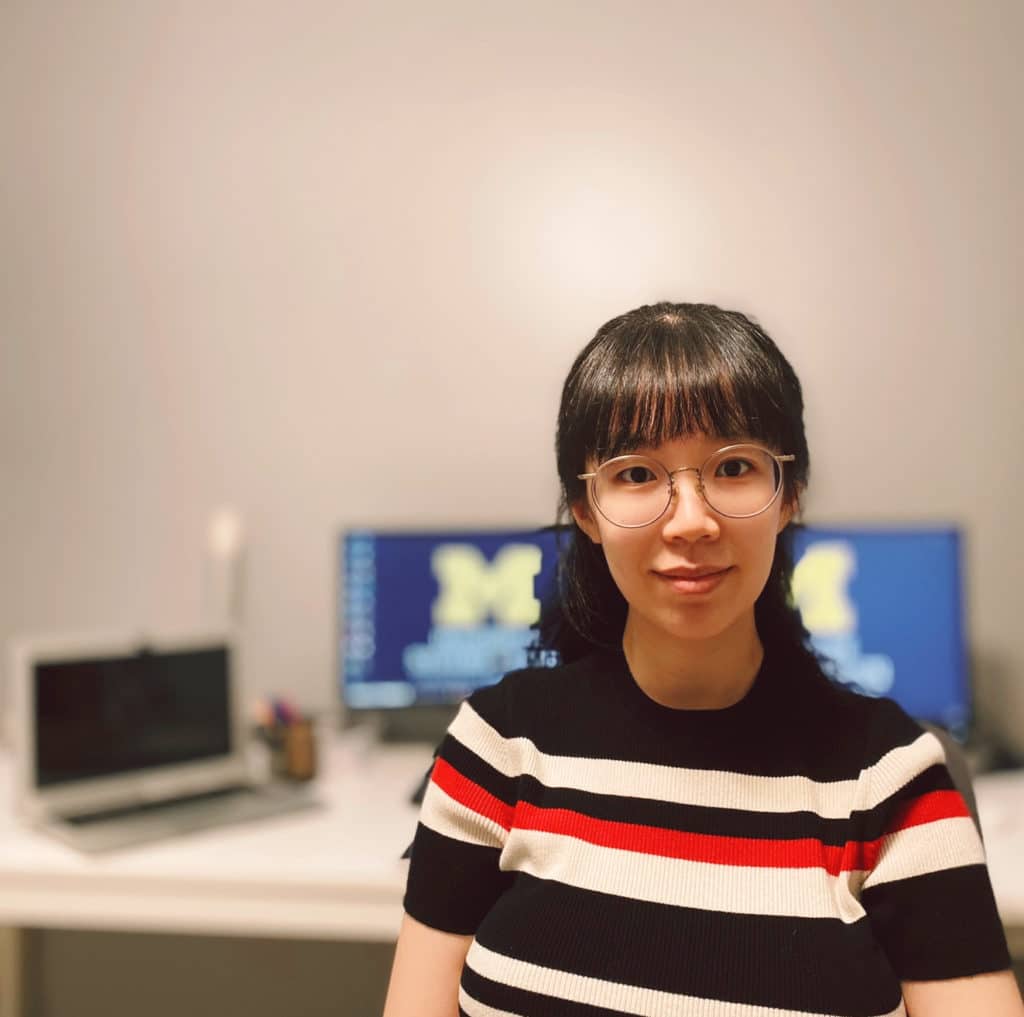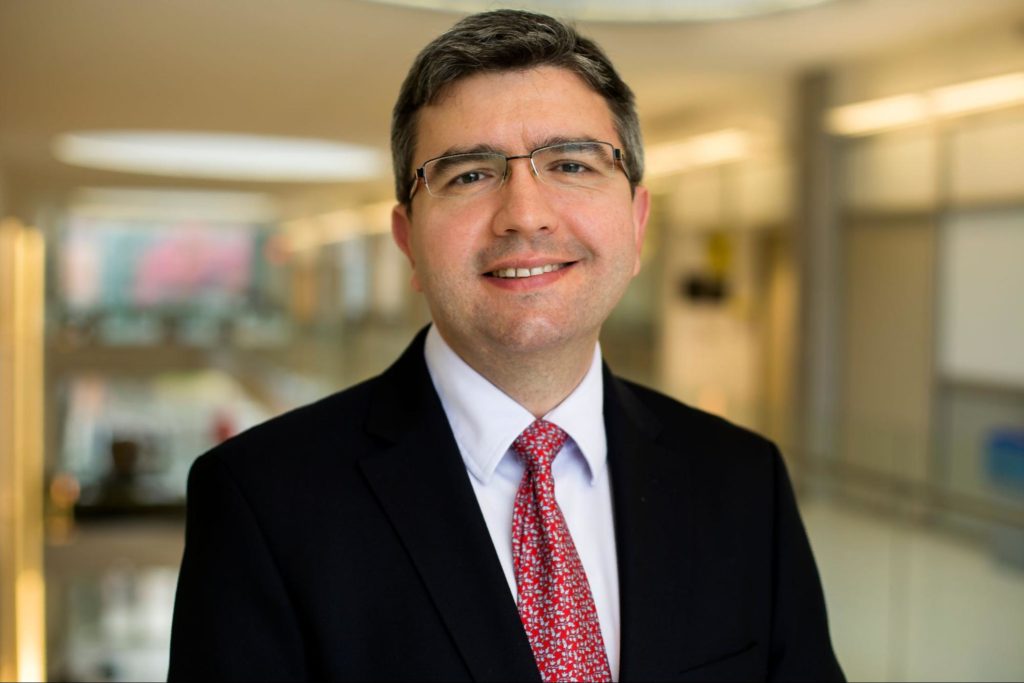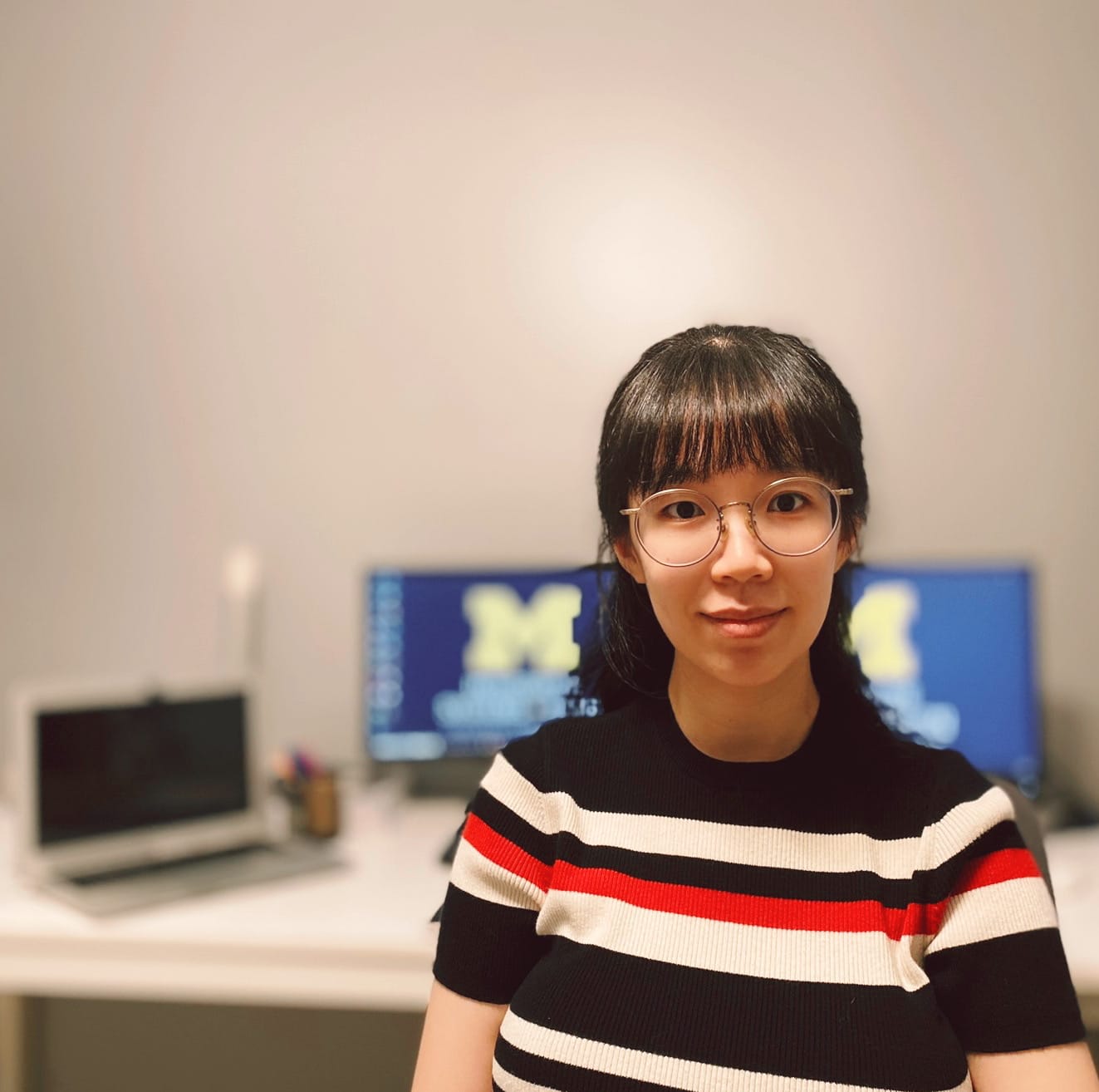ISD Systems Engineering and Design students use Artificial Intelligence (AI) in designing algorithms for dynamic teaming of autonomous vehicles in adversarial environments.
Yanchao (Vera) Tan, a class of 2022 System of Engineering and Design master student, designed and implemented an AI-based algorithm to improve collaboration, cooperation, and competition among independent intelligent agents to benefit autonomous vehicle operations.

Integrative thinking plays an important role in autonomy, as more and more driverless vehicles are used to accomplish diverse tasks in teams. Their enhanced interactions – attributes of a complex system – become critical to coordinate individual agents through communication to achieve a better team performance. This is particularly important and challenging when the observation of the environment is incomplete and intelligent adversaries are present. To gain actionable insights in teaming of autonomous vehicles, Vera and her colleagues built an AI-based GO-type inspired model to model the future competition between autonomous vehicle fleets and to evaluate critical factors in operations.
The Principal Investigator of this research, Bogdan I. Epureanu, is one of the founders of the Systems Engineering and Design Program in ISD, an Arthur F. Thurnau Professor, Professor of Mechanical Engineering and the Director of Automotive Research Center at the University of Michigan.

“We explicitly modeled vehicle’s knowledge of the environment by multi-channel features, representing the terrain condition, tasks preference, and adversarial behaviors,” Dr. Epureanu said. “A hybrid algorithm was designed to balance short-term planning and long-term goals based on learned knowledge. Considering the constrained bandwidth and information security, communication algorithms were designed to share advanced knowledge rather than primitive observations, which enhance the collaboration efficiency and lead to federated learning of adversaries.”
The work addresses several challenges, including:
- How does each agent determine if a communication is needed?
- How do we consider communication with limited bandwidth?
- How do we identify and adjust communication strategies to lead to the best team performance?
The research builds upon equity-centered design principles applied to AI-based autonomous systems through differential empowering heterogeneous agents. The proposed method for optimizing communication strategies by enabling each agent to adjust its own goals and actions enables equitable decisions while leading to advanced intelligence by collaboration, cooperation, and competition.
“Our impact was to gain equitable and actionable insights into independent intelligence and communication strategies,” Dr. Epureanu said. “ We identified agents who identify capabilities and requirements to perform a task reliably from experience and addressed challenges and risks for complex scenarios with increasing independent agents.”
To better understand the fundamental dynamics problem, the research team created an agent-based model with a hybrid path planning. Identified as critical were knowledge and information about the environment, about the opponents, and about demand. Each was modified by weights that encode the importance of the mission, risk adversity, and desirable incentives for exploration.
“Part of our future work will be to understand how we can adjust the weights dynamically depending on the situation,” Dr. Epureanu said. “Those weights are quite important in formulating this knowledge map being shared. That’s why we are planning to use a learning model that will establish the values of those weights.”
“A long-term plan is how to get to the desired demand and that is the current goal of the agent,” Dr. Epureanu said. “That path is modifying the knowledge map to avoid all obstacles and opponents and all of these are fused in a unified knowledge map.”
This research is sponsored by the Automotive Research Center (ARC) and includes industry and government stakeholders, Dr. Jonathon Smereka (U.S. Army GVSC), Dr. Xingyu Li (Ford Motor Co.), and Dr. Chenyu Yi (Mercedes-Benz).
